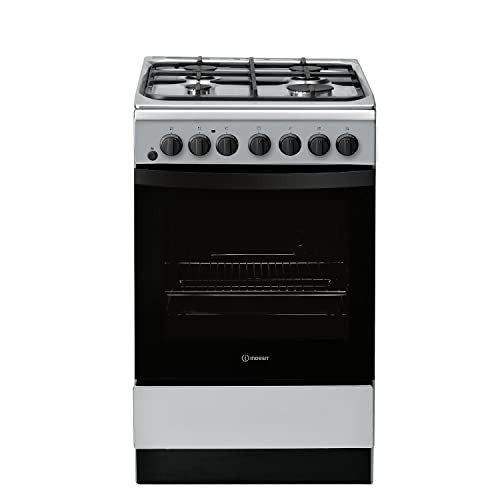The Comprehensive Guide to Sales Ovens: Understanding Their Importance, Types, and Best Practices
Sales ovens, a category of industrial cooking devices, are crucial players in the cooking and foodservice market. These home appliances, developed to prepare food in large amounts efficiently, are vital in dining establishments, catering services, and other food facilities. This short article explores the importance of sales ovens, their types, and best practices for picking and utilizing them efficiently.
What Are Sales Ovens?
Sales ovens, broadly specified, are cooking devices utilized mostly in industrial cooking areas to prepare, bake, or heat numerous food items at scale. Their style allows them to manage greater volume cooking compared to standard domestic ovens. Offered the nature of food service, sales ovens frequently include sophisticated innovations that promote speed, effectiveness, and even cooking.
Importance of Sales Ovens in the Food Industry
Sales ovens play a pivotal role in food production for lots of reasons:
- Efficiency: Sales ovens can prepare food more rapidly and equally than traditional ovens, allowing chefs to prepare meals in less time.
- Consistency: With accurate temperature level controls, sales ovens make sure that the food is cooked evenly every time, preserving quality across countless portions.
- Versatility: Many sales ovens can handle different cooking methods including baking, roasting, broiling, and even steaming, making them appropriate for diverse menus.
- Energy Savings: Modern sales ovens are often designed to be energy-efficient, decreasing functional expenses for organizations.
Kinds Of Sales Ovens
The marketplace uses a variety of sales ovens, each matched for particular cooking needs and kinds of food. Here are the most typical types:
| Type of Oven | Description | Best For |
|---|---|---|
| Convection Ovens | Employ a fan to circulate hot air, guaranteeing even cooking. | Baking and roasting products. |
| Combi-Ovens | A mix of convection and steam cooking, offering versatility in cooking approaches. | Diverse menus requiring steaming and baking. |
| Conveyor Ovens | Utilize a moving belt to constantly prepare food, suitable for high-volume operations. | Junk food and pizza. |
| Deck Ovens | Function separate compartments (decks) that can be individually managed, providing high performance. | Artisan bread and pastries. |
| Rotisserie Ovens | Designed to slowly roast meat on a spit, providing tender and juicy results. | Roasted meats. |
Choosing the Right Sales Oven
Picking the suitable sales oven for a particular company needs factor to consider of several elements:
- Volume Needs: Assess the volume of food that requires to be prepared. Oven Hobs implies choosing conveyor or combi-ovens.
- Menu Diversity: Understanding what type of meals will be cooked can assist the selection process. For instance, a bakery may need a deck oven, while a restaurant might gain from a convection oven.
- Area Availability: Measure kitchen space to guarantee the ovens fit properly and have required ventilation.
- Budget: Commercial ovens can vary considerably in price, so establish a budget plan that thinks about long-term operational savings.
- Energy Efficiency: Opt for ovens that have energy rankings to keep energy expenses manageable.
Best Practices for Using Sales Ovens
Effectively running a sales oven includes more than basic use. Here are some best practices to remember:
- Regular Maintenance: Schedule regular upkeep to clean and inspect the performance of the oven. This ensures longevity and performance.
- Preheating: Always pre-heat the oven to the wanted temperature before putting food inside for consistent cooking results.
- Make use of Thermometers: For accuracy, use an oven thermometer to ensure that temperatures stay constant, specifically for baking.
- Follow Cooking Times: Adhere to advised cooking times based on the type of food being prepared. Adjustments may be needed for various ovens.
- Avoid Overcrowding: Ensure adequate space around food products in the oven to enable correct air flow.
The Future of Sales Ovens
As technology advances, so do the abilities of sales ovens. Innovations such as wise innovation, energy-efficient styles, and enhanced security functions are ending up being more prominent. These developments promise to improve cooking effectiveness while also satisfying sustainability objectives.
FAQs about Sales Ovens
Q1: How do I clean my sales oven?
A: Regular cleansing includes getting rid of any food particles, wiping down surfaces with non-corrosive cleaners, and following particular cleaning suggestions from the manufacturer.
Q2: What's the life expectancy of a commercial oven?
A: Typically, a properly maintained industrial oven can last anywhere from 10 to 20 years, depending upon usage and maintenance.
Q3: Can sales ovens be used for baking?
A: Yes, numerous kinds of sales ovens, specifically convection and deck ovens, are particularly designed for baking a variety of products.
Q4: Are there energy-efficient alternatives for sales ovens?
A: Yes, numerous producers provide energy-efficient models that lower energy usage without compromising efficiency.
Q5: How often should I conduct maintenance on my sales oven?
A: It's advisable to perform routine upkeep checks monthly or quarter, depending upon usage levels. In addition, a thorough examination must occur at least yearly.
Sales ovens are vital in the modern cooking landscape. Oven Hobs to prepare big amounts of food effectively makes them essential for restaurants, catering services, and other food establishments. By comprehending the various types, choosing the best oven, and adhering to best practices, food service organizations can enhance their cooking processes, improve their offerings, and ultimately delight their consumers with outstanding culinary developments.

